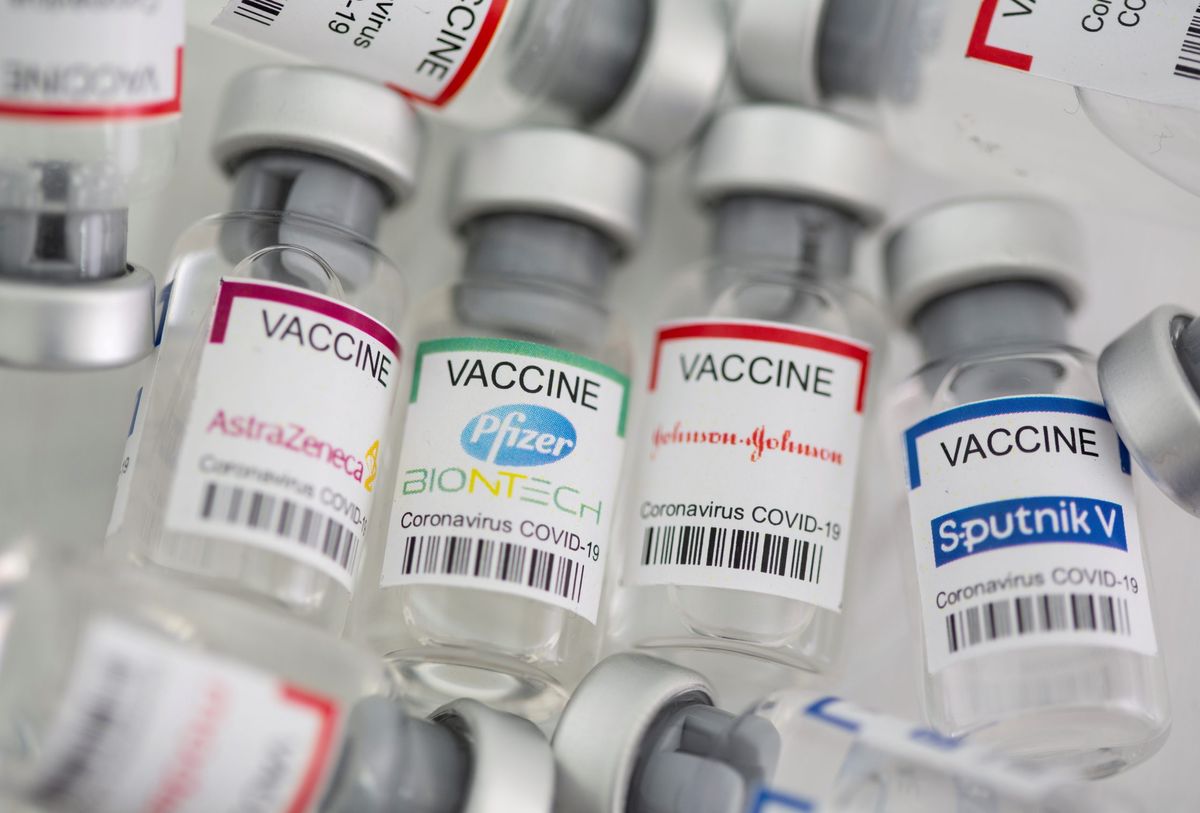Everything you need to know about the COVID-19 vaccine booster shots

A few minutes every morning is all you need.
Stay up to date on the world's Headlines and Human Stories. It's fun, it's factual, it's fluff-free.
In order to talk about booster shots are, we have to talk about what vaccines are. Vaccines basically give your immune system a tiny punching bag to practice against before it has to fight off the actual virus.
What’s a booster shot?
- In order to talk about booster shots are, we actually have to talk about what vaccines are. Vaccines basically give your immune system a tiny punching bag to practice against before it has to fight off the actual virus.
- Each vaccine is a different kind of punching bag. Some, like the ones for polio and smallpox, use the killed version of the germ that causes a disease. Others, like the ones for COVID-19 and the flu, use small bits and pieces of the live virus to train the immune system to hunt down those specific germs and fight it off.
- But, biology is messy and vaccines aren’t always permanent.
- Viruses can mutate fast and those small bits and pieces change, and sometimes, the pieces change so much that your immune system doesn’t recognize the virus anymore. This is why you need a new flu vaccine every year.
- The cells responsible for immunity also might also die off over time and you’ll eventually lose immunity to the disease.
- So, you can think of a booster shot as a software update for your immune system. If a virus changes too much, that software update is used to introduce the newly mutated virus. And, if your body has started losing immunity naturally, a booster is the perfect way to keep your immune system on its toes and remind it what to look for and fight off.
Why might we need one soon?
- The more a virus spreads, the more likely it’s going to mutate and avoid our old immunity. With only about 14% of the world vaccinated and still half a million new cases per day, we have to be ready to adapt and respond to anything the virus can throw at us.
- The delta variant is not the first mutation of COVID-19, but it is the one that has taken the world by storm. After the first case was found in India back in December, it spread quickly and now makes up 80% of cases in the United States.
- It’s been labeled as one of the most infectious respiratory diseases known. According to the Centers for Disease Control and Prevention (CDC), it’s almost twice as infectious as the original COVID-19.
- With this new threat, there’s good news and bad news. The good news is that our original vaccines are still effective. The bad news is that with the increased infectivity, it means that unvaccinated groups are in even more danger.
- The higher risk means more cases, which then can lead to more mutations.
- This vicious cycle is why viruses have kept up with all our modern medicine. And, like we talked about earlier, more mutations mean those old vaccines might not work as well anymore. This is where boosters come in.
Who’s making them?
- Our friends Moderna Inc. and Pfizer Inc, the two leaders in mRNA vaccines, are both pushing for booster shots.
- Moderna began developing their booster in February and released data showing that a third dose of the original or a variant-specific vaccine increased the immune response against the earlier Beta and Gamma variants. They believe that boosters will be variant specific, rather than the same old vaccine every time.
- Pfizer recently announced they also started developing a booster that’s specific to the delta variant. They expect clinical trials to begin in August and hope to have U.S. approval within the 12-month timeframe mentioned earlier.
- The leaders of those companies have said that a booster will probably be needed within 12 months, and they yearly boosters after that.
- “The next 12 to 18 months are still going to be pretty intense, pretty complicated," said Moderna Chief Executive Officer Stéphane Bancel.
Which groups haven’t been vaccinated?
- A KFF poll, which was conducted between June 8-21 of this year, found that the groups with the lowest vaccination rates included, Republicans (52%), white Evangelical Christians (58%), people between the ages of 18-29 (55%) those living in rural areas (54%) and uninsured adults under the age of 65 (48%).
- The survey also found that vaccinated and unvaccinated people tend to hang out together.
- The reasons why the respondents hadn’t gotten the vaccine varied, with most being concerns over the vaccines’ newness (20%), the side effects (11%) and a distrust of the government (11%). But quite a few responded saying that they just didn’t want to (11%) or didn’t believe they needed one (11%).
- And, similar to a month ago, 31% of unvaccinated adults said that they would consider getting the vaccine if. it had full approval from the Food and Drug Administration (FDA). But, within this 31%, 57% didn’t know the status of the vaccine and 15% already believed they had full FDA authorization.
What now?
- A COVID-19 booster shot at this point makes sure that vaccinated people will still be protected. Not only will it refresh and restart the clock on your immunity, but it will also update what your immune system, letting it know what it should be looking for.
- We technically already do this with the flu vaccine. Every year we get a new version, tailor-made to protect against the new year’s version.
- There have been worries about the side effects and risks of getting the vaccine. And, some people are worried that the original vaccine, not to mention the boosters, was rushed and dangerous.
- But the truth is, these mRNA vaccines were actually already being developed way before COVID-19 was even a rumor. And, the magic of these mRNA vaccines is that they’re easy to customize like aftermarket car parts, so scientists were able to add the COVID-19 information to the existing vaccines.
- The chances of vaccine injury are also incredibly low. For example, allergic reactions happen in 2-5 people for every 1,000,000 vaccinated and only 1,306 people have reported heart problems after the vaccine out of the 177,000,000 vaccinated people in the US. Out of those 1,306, only half have been medically confirmed.
- So, despite the expected need for booster shots in the coming years, experts still say that the current vaccine is the best protection we have right now. Even against the delta variant.
Have a tip or story? Get in touch with our reporters at tips@themilsource.com







Comments ()